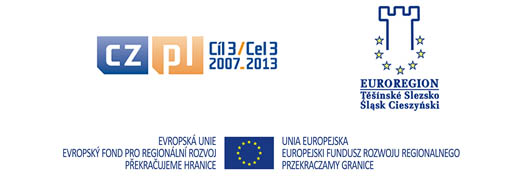22. Kazimierz II (Casimir II) * c.1448 + 13 December 1528
He was the only son of Bolesław II and Anna, the daughter of the Prince of Bielsko, Iwan. The date of birth of this prince is estimated no later than 1448, since in 1460 Prince Przemysław assigned the rule of Bielsko and surrounding villages to him. This means that he must have been at least twelve years old at the time. Owing to the early death of his father he was brought up by his uncle, Przemysław II and his mother, Princess Anna.
The death of Prince Przemysław in 1477 and the lack of a male heir amongst his remaining, previously deceased uncles allowed Kazimierz II to assume the rule of the whole of the Duchy of Cieszyn in peacetime.
Kazimierz's rule coincided with a turbulent period in the history of that part of Europe. A struggle for the Bohemian throne took place in the latter half of the 15th century following the death of Władysław Habsburg-Pogrobowiec (Vladislas Habsburg the Posthumous) in 1457. Prince Kazimierz, in keeping with his uncle, Przemysław, initially took the side of Matthias Corvinus (son of the great Hungarian general, John Hunyady), the King of Hungary, crowned King of Bohemia in Olomouc in 1469 by the anti-Podĕbrady Catholic opposition in Bohemia. The Prince of Cieszyn failed to make a clear declaration of support for the Hungarian king until peace was contracted in Muchobór Wielki in 1478, although there is some evidence he was then considering supporting the next King of Bohemia, the successor of King George, Władysław Jagiellończyk (son of the King of Poland, Kazimierz Jagiellończyk), who was elected King of Bohemia by the Bohemian camp in Kutna Hora in 1471. The links that Kazimierz maintained with the Cracow court throughout the whole of that period suggest such a position.
Kazimierz's political affiliations were finally revealed some time after 1478 and were linked to the conflict over the Cieszyn Princes' Głogów territories. In that year, Kazimierz's aunt Małgorzata, the widow of Prince Bolko (+ 1456), who resided in Głogów, bequeathed her dominion, namely half of Głogów, Bytom Odrzański and Góra Śląska, to him in anticipation of her death. Prince Jan II of Żagań, supported by Matthias Corvinus, laid claim to the inheritance. Jan besieged Głogów in 1480 and, despite mediation by the States of Silesia which took place at the congress in Wysoka Cerkiew from 18 to 22 March 1480, forced Małgorzata to capitulate on 1 May. The protests of Kazimierz proved ineffective, and allowed Matthias Corvinus, who at that time had begun to build his dominion in Silesia, to take control of disputed lands. Prince Jan dropped his claim in exchange for help given to him by Matthias Corvinus against the Elector of Brandenburg, who in turn had laid claim to the lands in the possession of the Prince of Żagań. The occupation of half of Głogów by Matthias Corvinus and subsequently also the remaining territory of the Duchy of Głogów belonging to the Cieszyn Princes was made easier by the death of the defeated Małgorzata on 22 July 1480.
After the death of Corvinus in 1490, Silesia was taken by the second of the Bohemian kings, Władysław Jagiellończyk. The time for the Prince of Cieszyn to advance in public service had now arrived. The Bohemian King named Kazimierz General Starosta of Silesia. He carried out this function until 1504, when King Władysław appointed his brother, Zygmunt Jagiellończyk, General Starosta of Silesia. The latter enjoyed this position for only two years, because in 1506 he was elected King of Poland, following the death of his brother Aleksander. The title of Starosta of Silesia returned to the Prince of Cieszyn, who held it until his death in 1528.
The King of Bohemia rewarded Kazimierz of Cieszyn in yet more tangible ways for his service. First of all Władysław Jagiellończyk gave him the Duchy of Głogów until the end of his life and also gave his approval for Kazimierz to seize the Duchy of Opava.
As starosta, the Prince of Cieszyn demonstrated resolution in dealing with the plague of banditry in Silesia. However, he also showed unexpected cruelty during the trial of Prince Mikołaj of Opole, wrongly sentenced to death in Nysa in 1497. Maybe his difficulties with regard to a successor were the retribution for the lack of justice shown during the trial.
The Prince of Cieszyn was not only an able politician but also a canny steward. During his reign the Duchy of Cieszyn enjoyed further economic stabilisation. The towns in the region, accorded numerous privileges by the prince, continued to grow. The prince cared particularly for Cieszyn, taking steps to make good the great destruction that took place at the end of the 15th century caused by the fire which ravaged the town. He also founded the present market square and donated two buildings for a new town hall.
Joanna (* c.1460 + 28 July 1496), the daughter of Wiktoryn of Podĕbrady became the wife of Kazimierz in the early 1480s. Political motives can be discerned in this match. Wiktoryn was on good terms with Matthias Corvinus at that time. It is not out of the question that Kazimierz saw in Wiktoryn an ally in his efforts to retain Głogów. Kazimierz's links with Wiktoryn lasted until the death of the latter. Wiktoryn, on the other hand, fell into dispute with Matthias Corvinus after having supported him for many years, which cost him the Duchy of Opava. Wiktoryn received several castles in Slovenia in compensation. In 1487 they were confiscated, one may cautiously speculate, as a result of his contacts with Emperor Frederick III, whom Wiktoryn had previously served, and with whom Matthias Corvinus was at war. Having lost them, the impoverished prince spent much time in Cieszyn, dying there on 30 September 1500.
Two sons were the issue of his marriage with Joanna; Fryderyk who was destined to enter the priesthood and his younger brother, Wacław, in whom Kazimierz saw his successor. In the event, Kazimierz outlived Wacław by four years.
(K. Jasiński, Rodowód, pp. 183-184, Z. Boras, Książęta, pp. 341-354)










